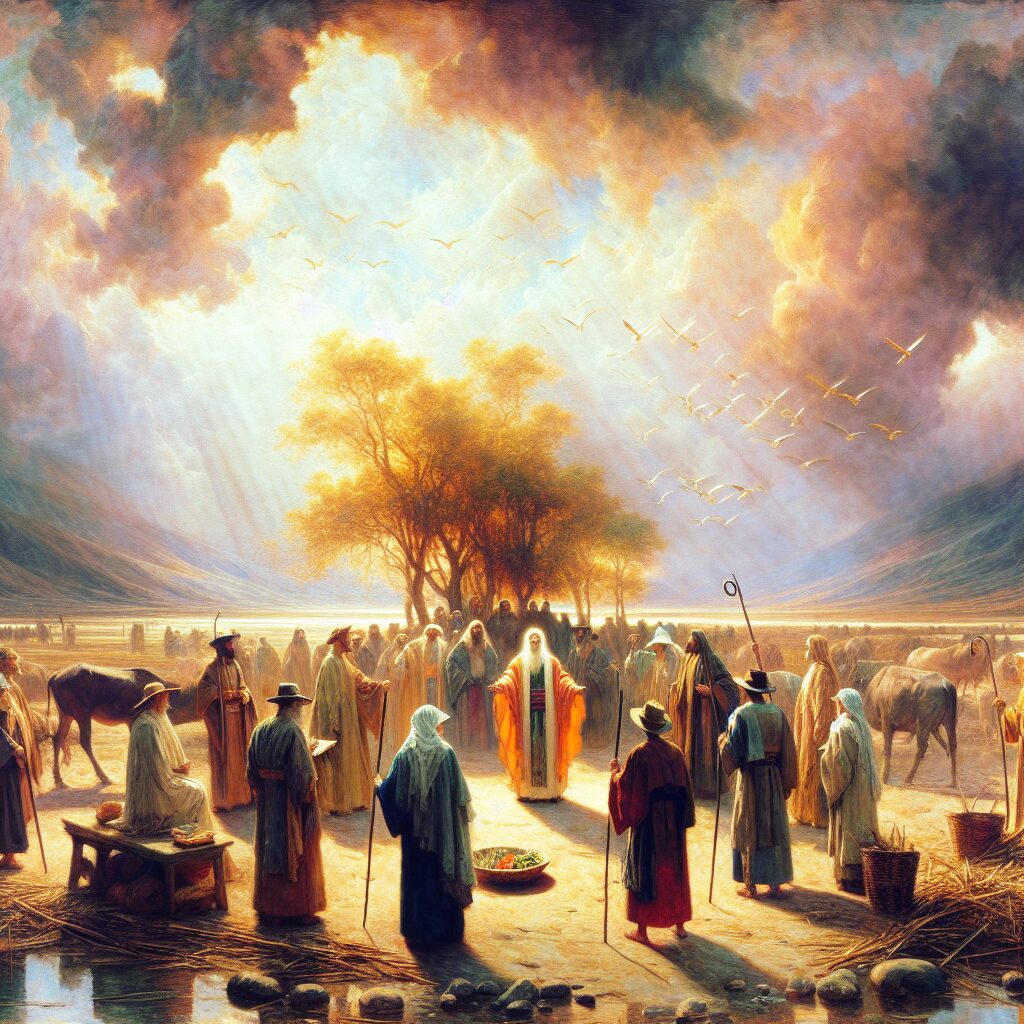Daily Bible Affirmation for February 03, 2024 – Leviticus 24:21

Bible Verse
“Whoever kills an animal must make restitution, but whoever kills a human being is to be put to death.” – Leviticus 24:21
Reflection
This verse from Leviticus may initially seem severe, reflecting a rigid sense of justice and retribution. However, when we delve deeper, there is a profound insight into the value and sanctity of life that resonates with core Christian teachings. At first glance, the passage underscores the serious consequences of actions in the context of ancient Israelite society. Yet beyond its historical context, it encourages reflection on our modern-day responsibility towards all forms of life and the importance of justice tempered by mercy.
The requirement for restitution for harming an animal demonstrates an early understanding of ecological responsibility and the interconnectedness of all creation. It calls us to be conscientious stewards of the environment, emphasizing respect and care for all living beings. This consideration extends beyond mere obligation to a deeper, compassionate lifestyle that honors God’s creation. Today, it reminds us to tread lightly on the earth, recognizing life’s intrinsic worth, and to act with humility and care toward every creature we encounter.
Furthermore, this verse underscores the severity of taking human life, pivoting us toward an appreciation of the sanctity of life as taught by Jesus. It emphasizes that every human life holds immeasurable value. Each person is made in the image of God, deserving of dignity and love. This is echoed through Jesus’ call to love our neighbors as ourselves. While the harsh punishment reflects an ancient legal framework, it illustrates the preciousness with which human life must be regarded and protected.
The application of this scripture in our lives is through understanding how justice, mercy, and love can coexist. In a world often filled with conflict and violence, this passage calls us to reflect on the ways we can contribute to the dignity of others’ lives. Can we engage more deeply in acts of peace, forgiveness, and reconciliation? How can we infuse our daily interactions with compassion, ensuring that our impact contributes to the flourishing of life rather than its diminishment?
As modern readers, we interpret this verse through the lens of Jesus’ teachings, which urge us to overcome transgressions with grace and compassion. The call is to live as agents of peace and love, transforming a world rife with hostility into one of understanding and redemption. In our growth as Christians, the realignment from legalistic justice to grace-based love is a vital step, reforming our hearts to mirror Christ’s perfect love.
Closing Thought
In embracing the transformative power of grace, let us commit to nurturing respect, integrity, and love for all creation. By doing so, we can honor the sacredness of life and reflect God’s boundless love each day.
Daily Bible Affirmation for February 03, 2024 – Leviticus 24:21 Read Post »



